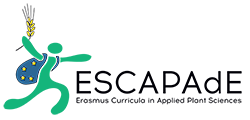English title:
Local knowledge and ethnobiology in organic farming - introduction
Course ID:
933333
ECTS credits:
3,0
Title in native language:
Local knowledge and ethnobiology in organic farming - introduction (in Eng.)
Local knowledge and ethnobiology in organic farming - introduction (in Eng.)
Term Semester:
Autumn/Winter
Instruction language(s):
English
Course content:
Organic farming was mainly developed by experiments and innovations of farmers and still today major developments in organic farming are advanced by organic farmers themselves. Such advances frequently stem from locally based knowledge, practice, attitudes and beliefs, which is altogether called local knowledge.
This lecture introduces the concept of local knowledge, its characteristics, potential, value and its relevance for the sustainable management of natural resources, especially in organic farming. Practical examples will be presented from several ethnobiological subdisciplines such as ethnobotany, ethnomedicine, ethnopedology and ethnoclimatology.
This lecture introduces the concept of local knowledge, its characteristics, potential, value and its relevance for the sustainable management of natural resources, especially in organic farming. Practical examples will be presented from several ethnobiological subdisciplines such as ethnobotany, ethnomedicine, ethnopedology and ethnoclimatology.
Expected previous knowledge:
English language skills on Master level.<br>This lecture is the prerequisite for the course Local knowledge and ethnobiology in organic farming – methods seminar (933.334), which focuses on the tools and methods that are needed to study local knowledge of organic farmers.
Learning outcomes:
By completing this course, you will:
- be familiar with the concepts of local knowledge and ethnosciences;
- recognize the value and practical potential of local knowledge and ethnosciences, especially for organic farming;
- be able to discuss and apply a simple framework for investigating local knowledge.
- be familiar with the concepts of local knowledge and ethnosciences;
- recognize the value and practical potential of local knowledge and ethnosciences, especially for organic farming;
- be able to discuss and apply a simple framework for investigating local knowledge.
Teaching and learning methods:
The course is split in two parts. The first part consists of a two-day seminar with lectures, activities, exercises and group discussions. This part is linked with an assignment on participant observation and the preparation of a poster. Students present the posters and discuss their experiences made with participant observation at a final meeting taking place four weeks after the two-day seminar.
The second part consists of seven assignments to be completed in BOKUlearn. The assignments include reading and reflecting on scientific papers, videos and talks; and doing online investigations about defined topics.
Total workload of 75 working hours (3 ECTS).
The second part consists of seven assignments to be completed in BOKUlearn. The assignments include reading and reflecting on scientific papers, videos and talks; and doing online investigations about defined topics.
Total workload of 75 working hours (3 ECTS).
Exam method:
Quality of assignment applying participant observation to study local knowledge (50%);
Quality of seven assignments in BOKUlearn (50%).
Quality of seven assignments in BOKUlearn (50%).
Organisation: University of Natural Resources and Life Sciences Vienna
Country:
Austria
Acronym:
BOKU
ERASMUS+ code:
A WIEN03
Teaching period summer semester:
22. Feb 2021 - 30. Sep 2021
Teaching period winter semester:
13. Oct 2020 - 21. Feb 2021
University website:
